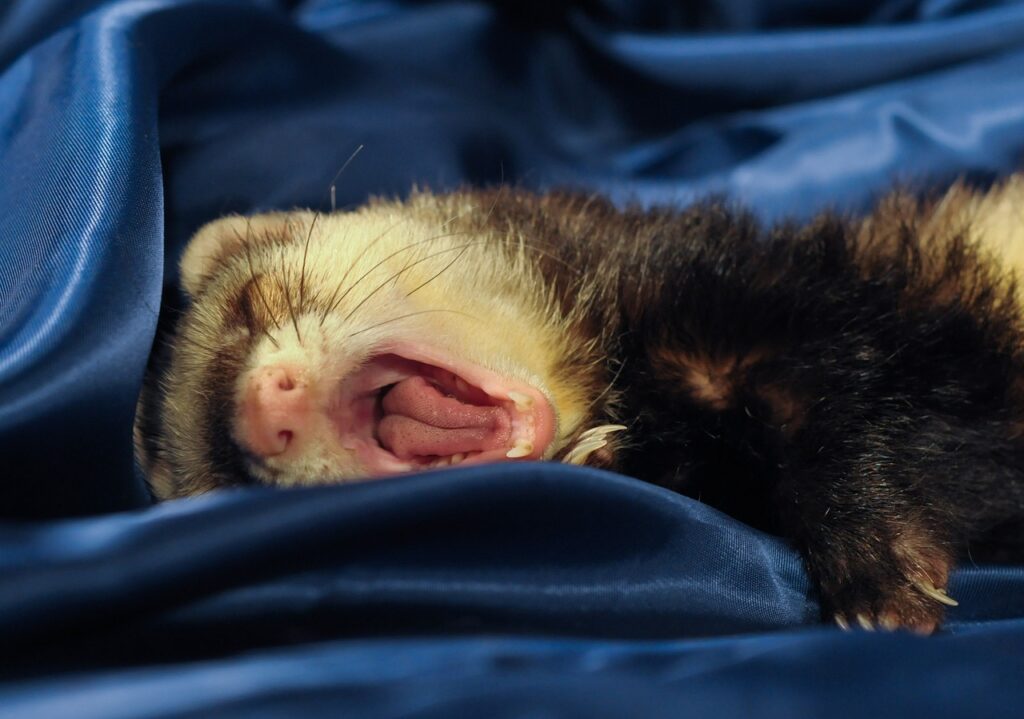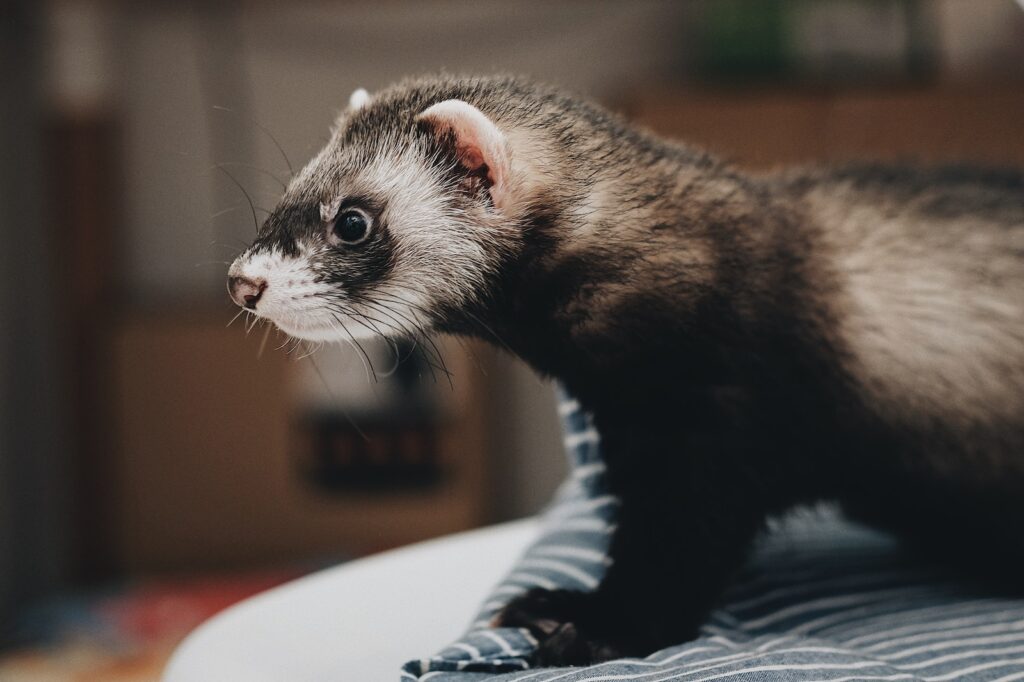Is Cheese Good for Ferrets? – No, Not Advised
Cheese is a popular snack among humans, but when it comes to ferrets, the answer is no, it’s not advised. Ferrets are obligate carnivores, meaning their natural diet consists mostly of meat. Dairy products like cheese are not a part of their typical diet and may cause digestive issues. Although a tiny bit might not harm them immediately, cheese should not be considered a healthy snack for these little critters.
The Food Ferrets Should Feast On
- Proteins from animal sources
- High-quality ferret or kitten food
- Occasional treats such as eggs or meat-based snacks
Fitting Treats for Ferret Diets
Ferrets have specific dietary needs that should be met by their regular food. While treats might be tempting, it’s important to ensure they are suitable for a ferret’s diet. Meats and eggs can be offered sparingly but keep in mind that moderation is key to prevent obesity and maintain their health.
Cautionary Cheese Tales for Ferret Care
Even though cheese might seem like an innocuous treat, it’s important to consider a ferret’s sensitive digestive system. Dairy can lead to stomach upsets, obesity, and nutritional imbalances in ferrets. Therefore, it’s advisable to avoid giving cheese altogether and stick to more appropriate treats that cater to their carnivorous needs.
Sharing is Caring, But Not Always
When it comes to sharing food with pets, it’s essential to know which animals can safely enjoy the same treats. In the case of cheese, while other pets like dogs or cats might tolerate small amounts, it’s better to avoid giving it to any pet, as it can contribute to lactose intolerance and other health issues.
Conclusion
In conclusion, ferrets are delightful and inquisitive creatures that require a diet tailored to their carnivorous nature. Cheese, despite being a tasty snack for people, doesn’t fit into a ferret’s diet and can lead to health issues. It’s best to provide them with high-quality ferret or kitten food, and meat-based treats in moderation to keep them happy and healthy. Always consult with a vet to make the best dietary choices for your furry friend.



